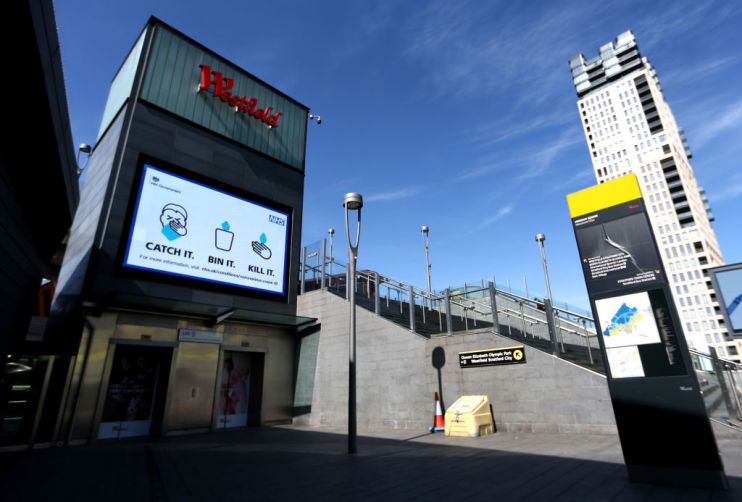Coronavirus: The government must outline the way forward

It is said that it is always darkest before dawn. And with our nation in the grip of the Coronavirus crisis – with the economy sinking, civil liberties restricted, and the peak of infections and deaths approaching – it certainly appears to be a particularly baleful moment for the UK.
But rather than dwelling on a present bereft of hope, we could refocus our gaze on a more positive future. One where Covid-19 is under control, where daily lives are resumed, and where we might actually get to enjoy the great British summer, rather than gaze ruefully out of our windows at spring’s rather successful attempt at trolling us with the current bout of fine weather.
Read more: Coronavirus death toll increases
Thus far though, and despite the commendable job it has done in containing the spread of the virus, the government has been silent on how we might escape our current state of purgatory.
In one sense, this is entirely understandable. The Prime Minister lies stricken in hospital, in a mercifully stable condition, but unable to perform a leadership function that this particular incumbent would have been expected to excel at in normal times. The government is therefore functional, but not inspirational.
The importance of having our commander-in-chief indisposed should not be under-estimated. We are in a wartime footing, against a determined foe, in a 24/7 media and social media age.
Winston Churchill might have been able to disappear at times during the Second World War for health reasons – suffering a mild heart attack and from pneumonia at different times – but his absence could be masked without requiring a beauty parade of other ministers to front daily press briefings, no matter how competent they have proved.
None of this is Boris’s fault of course, and we must be united in willing him to a speedy recovery, but it is essential that the government now turns at least part of its attention to the vexed question of what will happen next.
Because right now, there appears to be no exit strategy from lockdown.
Part of the reason the government has been slow to sketch a plan of action is because the science of Covid-19 remains inexact.
While we know that infection with a virus usually provides some form of immunity, thereby rendering the carrier safe from future occurrences, it is unknown for how long this might last, whether someone with immunity can still transmit it in some way, or if the virus will mutate significantly to render previous infection irrelevant. All this means that ideas of releasing those who have recovered from Covid-19 back into social and economic freedom are tinged with uncertainty about whether that will lead to an eventual second round of infections.
This is something beyond our knowledge at present.
But the main prong of an exit strategy – mass testing to know who has had the virus and is a candidate for release and who still needs to be shielded – is not. And here, it is safe to say that the government is fully aware that it is trailing in the wake of some of our continental neighbours like Germany and Italy, as well as those further afield like South Korea and Taiwan, and that it must do better.
So when Health Secretary Matt Hancock announced that the UK’s testing target was going to be lifted from 10,000 tests a day at the start of April to 100,000 by the end of the month, it was grounds to cheer. Until it was discovered this week that none of the 3.5 million antibody tests the government had purchased worked sufficiently well to be rolled out across the board. With doubts already swirling about UK laboratories being able to obtain the requisite consumables and chemicals to process testing on that scale, the door appears to have been slammed shut once more on a post-lockdown future.
This matters for the simple reason that as long as lockdown remains, the virus will be able to be contained but at the cost of our economic futures diminishing as much as our personal horizons have shrunk after two weeks of venturing only into our immediate neighbourhood.
While public health must always come first, the UK requires an understanding of how we will evolve beyond lockdown, and that will necessitate a public conversation about our options so that they can be assessed by experts. Much as our original Coronavirus containment strategy was first outlined, and then revised, once the science of the outbreak had been sufficiently debated.
This is a discussion the government has so far shied away from, but it must change its tune.
In a week marked by the Christian and Jewish festivals of Easter and Passover – which symbolise rebirth and liberty respectively – we need a sign from our leaders that the modern day plague we are facing will pass. Wouldn’t it be wonderful if the government were to hone a message of hope in the coming days, and perhaps even miraculous were Boris able to summon the strength to fight off this malevolent virus quickly in order to deliver it personally, and thereby lift the spirits of the nation.